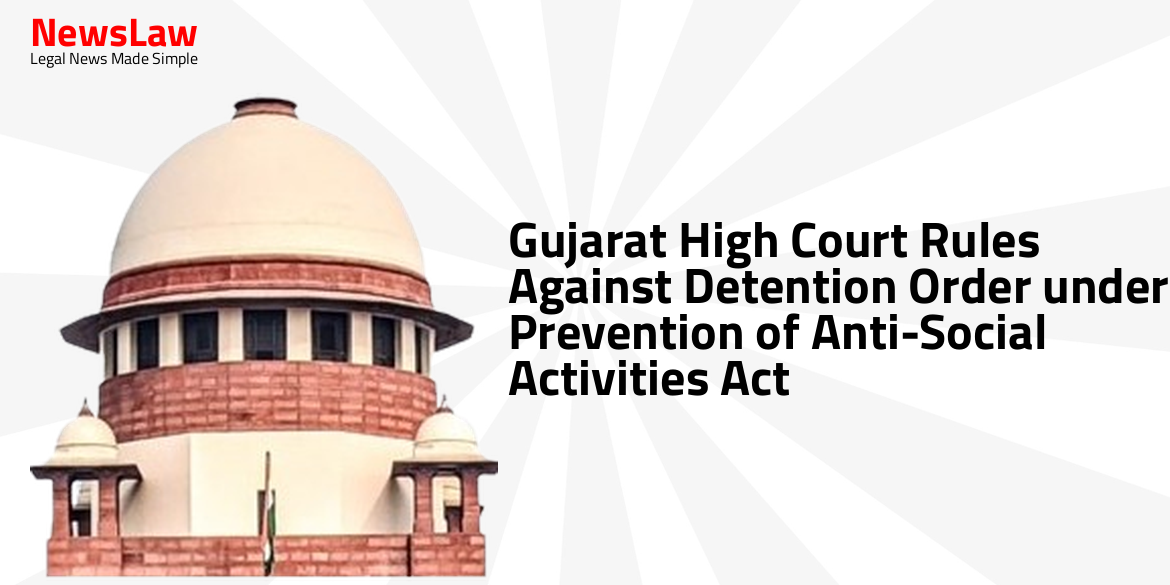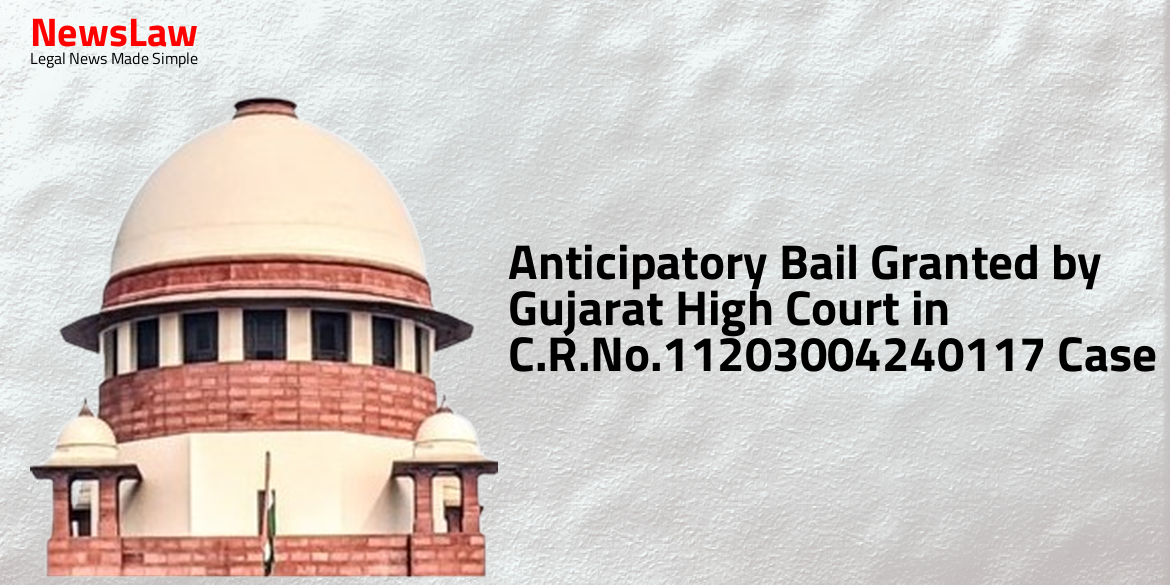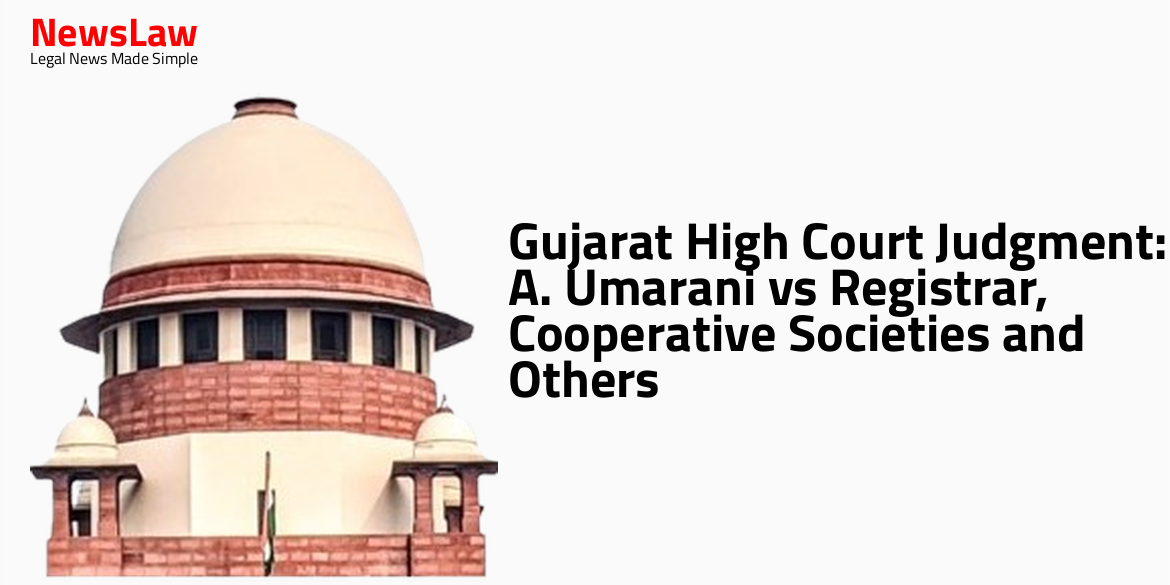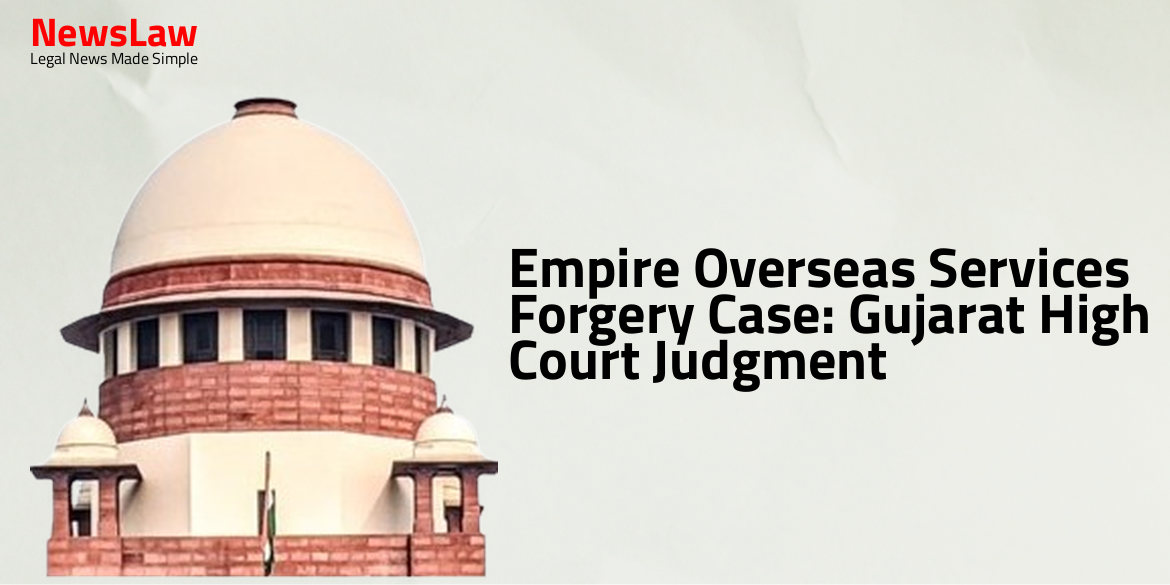The Gujarat High Court recently issued a decisive ruling on a case challenging a detention order under the Prevention of Anti-Social Activities Act. The petitioner contested the legality of the order passed by the detaining authority, arguing that it did not fulfill the necessary legal requirements. The court’s judgment delves into the intricacies of preventive detention and its implications on public order, setting a significant precedent in such cases.
Facts
- The present petition challenges the order of detention dated 11.01.2024 passed by the detaining authority under the Gujarat Prevention of Anti-Social Activities Act, 1985.
- The detaining authority has detained the petitioner as defined under Section 2(c) of the Act.
- The petition is specifically directed against the detention order under Section 3(1) of the Act.
- The petitioner is challenging the legality and validity of the detention order in this case.
Issue
- Whether the present case involves a substantial question of law as to the interpretation of the Constitution of India or any order made thereunder.
Arguments
- The learned AGP for the respondent-State supported the detention order passed by the detaining authority.
- It was argued that sufficient materials and evidence during the investigation indicate the detenue’s habit of indulging in activities defined under Section 2(c) of the Act.
- The detaining authority was deemed to have rightly passed the order of detention based on the facts of the case.
- The AGP submitted that the materials supplied to the detenue corroborate the allegations, justifying the detention.
- The court found that the subjective satisfaction of the detaining authority did not align with legal requirements, as the alleged offenses in the FIRs did not relate to public order as mandated by the Act.
Analysis
- Authorities must consider Articles 21 and 22 of the Constitution while passing detention orders.
- District Magistrate can act under specific rules to prevent subversion of public order, not for maintenance of law and order in regular circumstances.
- The order in question did not mention any application for bail cancellation by State authorities.
- There is a lack of specific evidence showing the detenue’s actions endanger public order.
- Public order, law and order, and security of State are distinct circles of impact.
- Several detention orders under the Telangana Act of 1986 have been revoked by the High Court recently.
- Preventive detention power should only be used with concrete evidence of a person posing a significant threat to society and public order.
- Preventive detention involves detaining a person without trial to prevent them from committing certain offenses, not as a substitute for ordinary law.
- The investigating authorities should not be absolved from their normal functions of investigating crimes the detenu may have committed.
- Preventive detention cannot be used to keep a person in perpetual custody without trial; it is meant for a maximum of one year in most cases.
- Disturbances that subvert public order are the basis for preventive detention, not mere disturbance of law and order leading to disorder.
- Personal liberty protected under Article 21 is of utmost importance, and detaining authorities must adhere to lawful standards.
- Every disruption does not amount to disturbance of public order; it must affect the community or the public at large to qualify.
- Preventive detention powers are exceptional and should be exercised carefully to avoid abuse and arbitrary exercise of state authority.
Decision
- The rule has been made absolute to the said extent.
- Direct service is allowed in rare and exceptional cases.
Case Title: FIROZKHAN @ PAPPU S/O SARDARKHAN PATHAN Vs. STATE OF GUJARAT
Case Number: R/SCA/4400/2024



